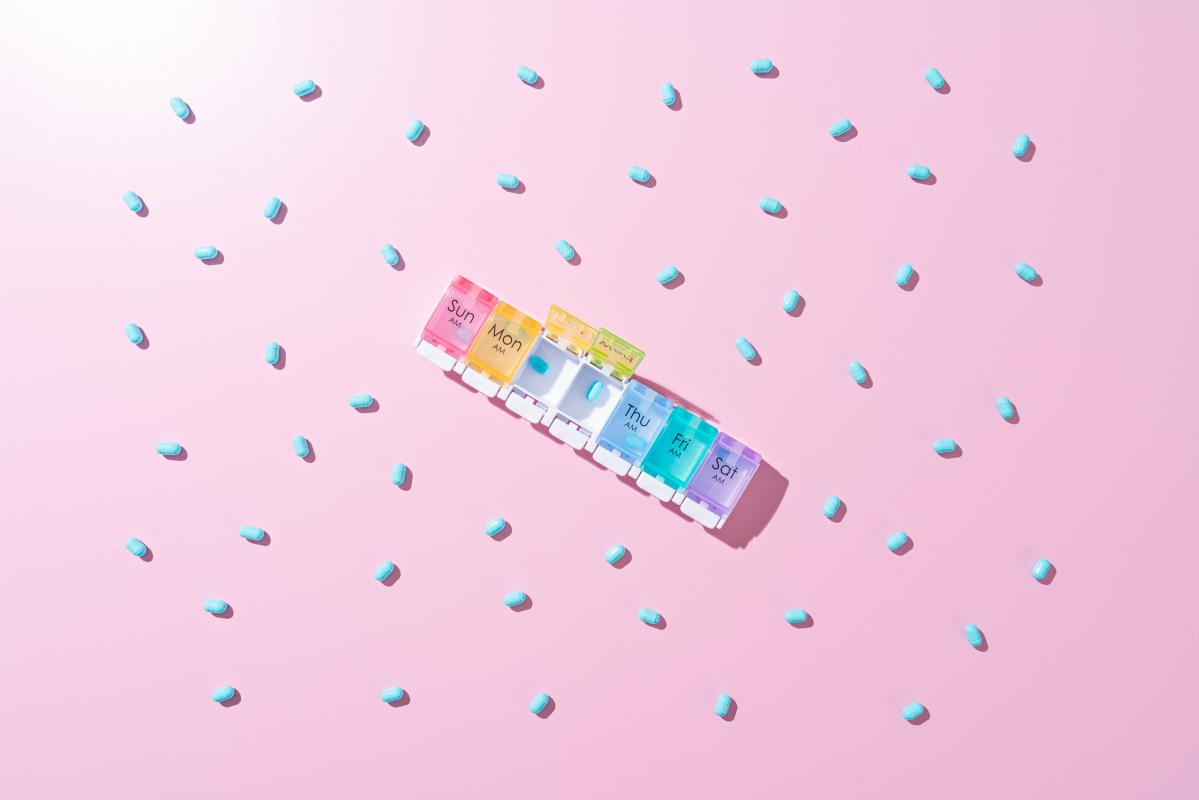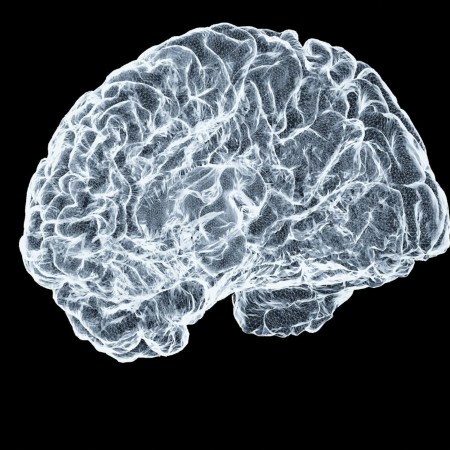Millions of Americans with ADHD are currently making do without their meds. The nation is mired in a prescription medication shortage, which began last fall due to Adderall supply chain problems, and has only compounded on account of the drug’s ascendant popularity.
When it first announced the shortage in October 2022, the FDA thought the manufacturing issue would be resolved within a couple of months. But as of this January, the American Society of Health-System Pharmacists was still reporting shortages affecting nearly 40 different doses or formulations of generic Concerta, a drug required in Ritalin production.
Other medications have become scarce due to Adderall users switching prescriptions for ADHD symptom relief. Over the past two months, as access has dwindled, many people with the disorder are saying on social media that there are “fake” and ineffective drugs being distributed.
“I probably called maybe 30 pharmacies one day,” says Danielle Payton, a publicist living in Miami who usually takes the ADHD medication Vyvanse for her symptoms. After having no luck in her search, she says, “My mental health was shit.” She became depressed, same as she was as a child, before getting diagnosed and engaging in treatment. “Because I couldn’t be successful in everyday tasks, or concentrate and stay on task, my self esteem went down the drain,” she says. “I felt like I was useless again.”
Blows to self confidence are common in people experiencing ADHD symptoms without treatment. “It didn’t matter how many hours I spent doing homework, it was never enough,” says Bob LeBlanc, a graphic designer, performer and theater group owner from New England. Prior to being diagnosed with the disorder as a kid, his underperformance in school earned him the label of lazy. “The stereotypical ADHD story,” he says. “I was convinced I was just broken.”
But for so many people living with the neuorbehavioral disorder and struggling throughout the medication shortage, there is one means of living a little more comfortably. ADHD treatment options they may not have considered, or even been aware of, exist in psychotherapy.
Do “Exercise Prescriptions” Actually Work?
Some physicians are pushing patients towards hikes, not pills“I’ve had a lot of clients tell me that if they were able to take Adderall, or any other stimulant, that their life would be cured. My number one response to that is, ‘I really wish that were true because that would be amazing,’” says Michelle Hunt, LMHC and NCC, of Empower Your Mind Therapy in New York.
She says working with a therapist who specializes in neurodivergent clientele can help people with ADHD better manage their symptoms. Among other benefits, psychotherapy treatment “has a positive impact on working memory,” which gives the patient “a higher chance of experiencing less distress and impairment,” Hunt says.
Hunt, who lives with ADHD herself and has a history of taking Adderall, acknowledges the drug is helpful for many. But she views the medication as “an accessibility ramp for somebody in a wheelchair. It helps with some of the barriers, but it’s not going to make [them] walk.” A person with ADHD must still “learn how to accommodate different areas of your life outside of just taking medication,” she says.
“We teach people organizational skills,” says Dr. Ryan S. Sultan, a psychiatrist who specializes in advanced psychotherapy and psychopharmacology for individuals with ADHD, Anxiety, and substance use disorders. “If you’re a person with ADHD, you’re going to get distracted easily. We teach you skills to be in an environment so you can limit distractions.”
One tip he might give a client living with ADHD is to wear noise-canceling headphones in places where distractions might show up. If those aren’t available and they need to get work done, they should consider doing so in a quiet zone, like a library, or some lesser-populated area. For clients who struggle completing tasks, he’ll get them to write them down in a prioritized list with estimates of how long each will take to finish. Then he’ll have them pick one task and outline the individual steps they’ll need to take to complete it.
Hunt says she instructs ADHD clients who frequently make fast-paced speech mistakes to “step back, take a deep breath, recalibrate and say, ‘That is not what I meant to say; here’s what I meant to say.’”
There are a number of tried-and-true psychotherapeutic approaches that counselors can take to help clients with ADHD, whether they’re on Adderall or not. These include cognitive-behavioral therapy, mindfulness-based cognitive therapy, dialectical behavioral therapy and more, so there’s a good chance a therapist can fine-tune the treatment for individualization.
Neither Hunt nor Sultan say psychotherapy can definitely solve all the problems their neurodivergent clients face. But a multi-pronged approach that mixes therapy and meds is more beneficial. (Here’s one scientific study from nearly a quarter century ago that says so.) Even exercise can help people with ADHD better manage their symptoms.
Could Psychedelic Ketamine Therapy Cure Alcohol Addiction?
The drug might be able to “rewire the disappointment center” in your brainOne client of Hunt’s, a 33-year-old accounting coordinator who asked not to be named, says she hasn’t filled a prescription medication tube for her ADHD symptoms in quite some time — and that’s on purpose, going back to way before the pill shortage. She tried out a series of meds as a teen, but for years since has relied more heavily on therapy.
Referring to the medication crisis, she says, “I can see the frustration in the inaccessibility for friends and colleagues that are being impacted, especially as my roommate is one of those impacted so heavily by the shortage. There’s definitely a sense of helplessness I can see.” She observes that having therapy “as a consistent support” has helped her immensely, and believes the Ritalin shortage is a time for people with ADHD to lean on the other treatments that could provide some relief. “There’s still something taboo about therapy in so many cultures,” she says, “but I think it’s really important to be able to obtain the proper support needed to heal.”
Though Payton, the publicist, and LeBlanc, the theater artist, have struggled these past few months without their medications, they’ve also relied heavily on psychotherapy and coping techniques that they learned years ago. In fact, LeBlanc — who learned how to mitigate his symptoms over a few years in therapy decades ago — even went back to therapy at the outset of the pill shortage. He wanted to get out in front of the problem, but he says that after a few weeks he didn’t need to see a therapist anymore. The time he spent back with a counselor simply served as a refresher course for what he learned in his 20s.
While not an apples-to-apples comparison for a number of reasons, Sultan says this lesson about multi-pronged treatment approaches to mental health issues like ADHD can also be applied to anxiety and depression. Those are two other conditions where it often seems like many people believe, for one reason or another, that taking a pill every day will take care of everything. That’s not how it works — or at least, that’s not how it works best. (Here’s another study from nearly a quarter-century ago saying so.)
The New York Times recently profiled a teen girl who was given 10 different psychiatric drugs to treat her mental illness symptoms: “Psychiatrists and other clinicians emphasize that psychiatric drugs, properly prescribed, can be vital in stabilizing adolescents and saving the lives of suicidal teens. But, these experts caution, such medications are too readily doled out, often as an easy alternative to therapy that families cannot afford or find, or aren’t interested in.”
While I’ve never been diagnosed with the neurobehavioral disorder ADHD, I’ve been diagnosed with anxiety and depression, which are psychiatric issues. I was prescribed anti-anxiety medication and an antidepressant a number of years ago when my mental illness symptoms were causing sleep deprivation. But before that period, throughout it and ever since I’ve also engaged in psychotherapy, with a counselor who’s individualized my treatment via a mix of approaches — including the very the ones I listed above for ADHD symptom mitigation. I took the meds for a year before I began to wean myself off them under the guidance of a psychiatrist.
I remember once hearing a comedian speak about his struggles with depression, anxiety and anger issues on WTF with Marc Maron. I related to many of the experiences he recalled — and especially his take that medications make it only 19% easier to get through the day. The rest is therapy and behavioral changes. For whatever reason, that 19% figure has stuck with me; it feels like the exact right number to describe the overall effect mental health meds had on me, too. While every person’s mental health issue is their own, and must be treated with curated care specifically for them, I can say that for me, taking some daily pills was no panacea. I’m hardly alone with that take.
Sultan, the psychiatrist who specializes in ADHD care, says the failure of many in the medical community to provide dynamic mental health treatments, let alone inform patients about potentially varied approaches, is “a huge problem.” “They’re not taught to advocate at that level,” he observes, because “all these fields are individually-based fields.” Physicians strictly focus on their area of expertise, and so do mental health counselors. But there needs to be more crossover and collaboration.
For people with ADHD, who are feeling unsettled in this time of prescription medication scarcity, Hunt, the other specialist counselor, says, “You will survive without Adderall.” She consents that daily life “will be a struggle” without medication as, while “it’s not a cure-all,” it certainly helps a lot. However, she adds that therapy will almost certainly provide a boost for those struggling through this shortage.
“With the shortage, I’m convinced there are a lot of people who should seek that treatment outside of the medicinal,” says LeBlanc. He advocates for psychotherapy and associated skill-building, to help ease ADHD symptoms.
If therapy is not an option (which is unfortunately the case for many) LeBlanc recommends “keep walking, keep hiking, keep exercising,” at the very least. “Those endorphins you get are going to generate some small amount of dopamine and our life is about chasing dopamine. We don’t get enough of it normally.”
The Charge will help you move better, think clearer and stay in the game longer. Subscribe to our wellness newsletter today.

























